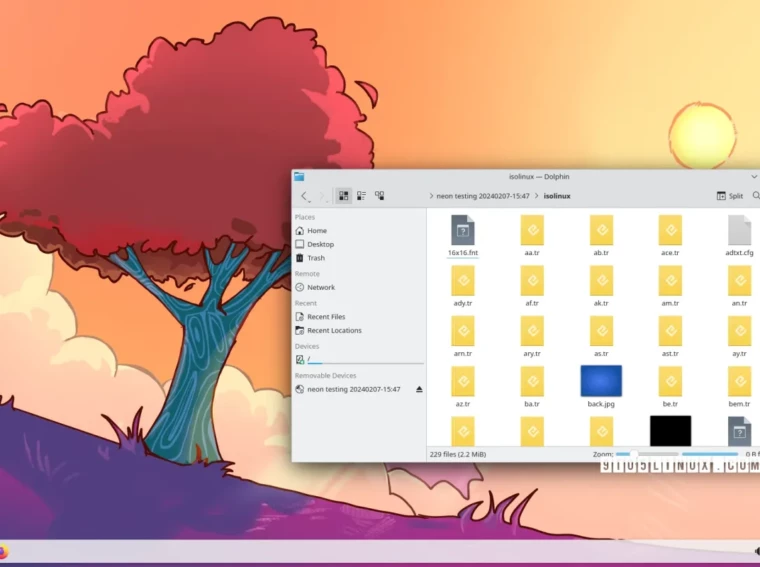The KDE Project has released KDE Frameworks 6.5, the latest update to its collection of over 70 add-on libraries for Qt, which provide essential functionality for the Plasma desktop and KDE applications.
KDE Frameworks 6.5 introduces several enhancements, including improved accessibility for multiple controls on the Shortcuts page in System Settings, and a standardized use of the red X symbol for “remove this abstract thing,” as recommended by the Human Interface Guidelines (HIG) in the Breeze icon theme. It also brings better support for applications running on the Plasma Wayland session.
This release adds tooltips to the open/save dialogs and various other areas in Dolphin’s Places panels, displaying relevant information when hovered. Performance improvements have been made for elements in KDE that utilize the KFileItem::isHidden function. Additionally, the “Get New [thing]” dialogs have been updated to allow file downloads from the details page of an entry that contains multiple items.
KDE Frameworks 6.5 also enhances support for applications that separate their transient state data from persistent configuration data by placing the state configuration file in the standard XDG state folder located at ~/.local/state/. Moreover, it adds support for apps to remember their window size, maximization state, and position on the Plasma X11 session.
Security has been strengthened with the implementation of KAuth using file descriptors instead of file paths, with support for this feature on the Login Screen page in System Settings. The update also improves the “Click in track to scroll by one page at a time” feature and enhances support for immutable distributions like Fedora Kinoite.
Several bugs have been fixed in this release, including a Plasma crash that occurred when attempting to reassign a shortcut to a widget that was already in use. For more detailed information, you can refer to the full changelog.
KDE Frameworks 6.5 will soon be available in the stable repositories of various popular rolling-release distributions, such as KDE neon, Arch Linux, and openSUSE Tumbleweed, as well as other established distributions like Fedora Linux. Be sure to update your installations accordingly.

